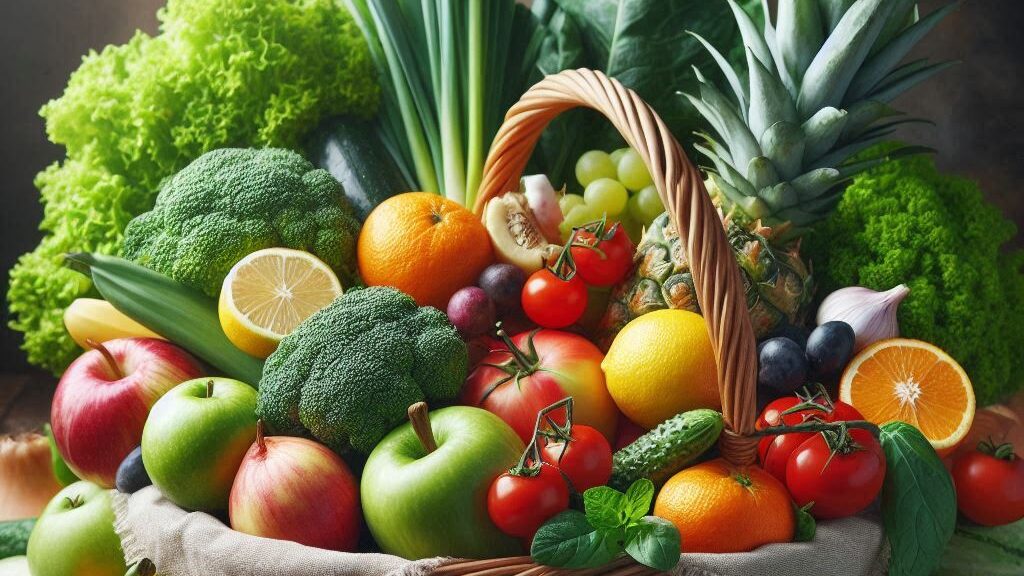Cholesterol, a waxy substance produced by the liver and essential for bodily functions, circulates in our bloodstream. However, factors such as poor diet, sedentary lifestyle, smoking, advancing age, and genetic predispositions can elevate cholesterol levels, posing health risks.
Fortunately, making dietary adjustments can effectively lower cholesterol levels naturally. By integrating certain wholesome foods into your meals, you can promote healthier cholesterol levels alongside maintaining a balanced diet and achieving a healthy weight. It’s crucial to note that any changes to your cholesterol medication should only be made under the guidance of your healthcare provider, ensuring optimal management of your health.
Including specific foods in your diet can help naturally lower cholesterol levels:
- Leafy Greens
Leafy greens such as spinach, kale, and collard greens are essential for managing cholesterol levels. These vegetables are rich in soluble fiber, which binds to cholesterol in the digestive tract and helps eliminate it from the body. Additionally, they are packed with nutrients like vitamin K, folate, and magnesium, which indirectly support cholesterol management. Antioxidants found in leafy greens, such as lutein, also contribute to preventing cholesterol buildup in arteries.
- Cruciferous Vegetables
Cruciferous vegetables like broccoli, cabbage, cauliflower, and Brussels sprouts contain compounds called glucosinolates. These compounds are known to help lower LDL (bad) cholesterol levels. Regular consumption of cruciferous vegetables can also improve overall cholesterol and lipid profiles due to their high fiber content. Moreover, they are rich sources of essential vitamins, minerals, and protein, making them valuable additions to a heart-healthy diet.
- Beans
Beans such as red beans, white beans, and navy beans are excellent choices for reducing cholesterol naturally. They are high in soluble fiber, which forms a gel-like substance in the digestive tract that binds cholesterol and bile acids. This binding process helps prevent cholesterol from being absorbed into the bloodstream, effectively lowering overall cholesterol levels. Including beans regularly in your meals not only supports heart health but also provides a good source of plant-based protein and essential nutrients.
- Oats
Oats are a top choice for those seeking low-cholesterol foods. As a whole grain rich in soluble fiber, oats, like barley and quinoa, are excellent for breakfast. Regular consumption of oatmeal can naturally reduce cholesterol levels due to its soluble fiber beta-glucan, which prevents cholesterol absorption into the bloodstream. Oats also support weight management, help control blood sugar, and promote overall heart health.
- Barley
Similar to oats, barley is high in beta-glucan, a soluble fiber that acts as a superfood for managing cholesterol. This heart-healthy whole grain can be incorporated into various dishes, including chapattis, breads, soups, and stews, to help prevent the absorption of cholesterol and fats into the bloodstream.
- Legumes
Certain legumes like lentils, peas, and chickpeas are known for their cholesterol-lowering properties when consumed regularly. They are rich sources of plant-based protein and contribute to overall heart health.
- Nuts
Nuts such as walnuts, almonds, and pistachios are recognized as beneficial for cholesterol levels. They contain fiber, plant sterols, and healthy fats that help lower LDL cholesterol and improve heart health. Consuming a small handful of nuts regularly can provide multiple health benefits.
- Fruits and Berries
Fruits are essential for their fiber content, which plays a crucial role in lowering LDL cholesterol. Apples, oranges, grapes, and other fruits can serve as healthy snacks to help naturally lower cholesterol levels. Berries like strawberries, blueberries, and blackberries are particularly rich in fiber and antioxidants, contributing to heart health. It’s advisable to prefer fresh fruits over dried ones, which are higher in calories and fructose.
Incorporating these foods into your diet, along with maintaining a balanced and nutritious eating plan, can significantly contribute to managing cholesterol levels naturally. It’s important to complement dietary changes with other healthy lifestyle habits, such as regular physical activity and avoiding smoking, for optimal cardiovascular health. Always consult with your healthcare provider before making significant changes to your diet or cholesterol management plan.
In conclusion, managing high cholesterol levels is crucial for reducing the risk of stroke, heart disease, and other health complications. Individuals with abnormal lipid profiles should consult with a doctor, cardiologist, or dietitian at a tertiary care hospital for personalized advice and immediate attention to their cholesterol management. Adopting a diet rich in these foods can significantly support efforts to maintain healthy cholesterol levels and overall cardiovascular well-being.
GET IN TOUCH

